This is something I wrote a quarter-century ago in a memoir of my childhood and youth:
Memory is the key to a small town. A stranger driving through my home town would see nothing but schools, stores, and houses. Some are handsome, others nondescript, but all have one thing in common: the important parts are invisible, at least to eyes unaided by memory. This is why people like me never like to hear about how their home towns have changed since they moved away. Every change in the place where you grew up is an insult, a run in the homespun fabric of recollection.
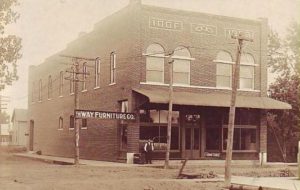 I still feel much the same way, which is why it saddened me to learn that the International Order of Odd Fellows Building, which has stood in the center of Smalltown, U.S.A., since 1908, was torn down the other day. It had to go: old age made the building structurally unsound, and after a passing storm caused the roof to cave in, no part of the rest of it could be saved. Still, I don’t like to think of so familiar a corner of my beloved home town now being “occupied” by a pile of rubble. The downtown districts of small midwestern towns, after all, aren’t exactly a growth stock, and I suspect that it will be a very long time before anything new goes up at this particular address. More than likely, its destiny is to look for many years to come like the gap left by a missing front tooth.
I still feel much the same way, which is why it saddened me to learn that the International Order of Odd Fellows Building, which has stood in the center of Smalltown, U.S.A., since 1908, was torn down the other day. It had to go: old age made the building structurally unsound, and after a passing storm caused the roof to cave in, no part of the rest of it could be saved. Still, I don’t like to think of so familiar a corner of my beloved home town now being “occupied” by a pile of rubble. The downtown districts of small midwestern towns, after all, aren’t exactly a growth stock, and I suspect that it will be a very long time before anything new goes up at this particular address. More than likely, its destiny is to look for many years to come like the gap left by a missing front tooth.
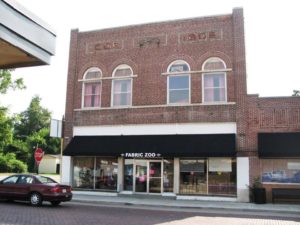 The Independent Order of Odd Fellows is itself a dusty anachronism, one of the many fraternal organizations and service clubs that, like Kiwanis, the Elks, and Rotary, used to be so prominent a part of the American cultural landscape. H.L. Mencken and Sinclair Lewis loved to whack them around once upon a time, but they are now as distant a memory as The American Mercury itself. While a few seem to be coming back, most of the rest are fast-fading relics of the days when men liked to get together of an evening to amuse one another instead of peering at their iPads in the hope of staving off ennui.
The Independent Order of Odd Fellows is itself a dusty anachronism, one of the many fraternal organizations and service clubs that, like Kiwanis, the Elks, and Rotary, used to be so prominent a part of the American cultural landscape. H.L. Mencken and Sinclair Lewis loved to whack them around once upon a time, but they are now as distant a memory as The American Mercury itself. While a few seem to be coming back, most of the rest are fast-fading relics of the days when men liked to get together of an evening to amuse one another instead of peering at their iPads in the hope of staving off ennui.
I never went in for such collective amusements, being the least clubbable of people, but neither did I hold them in the jeering contempt that was Mencken’s specialty. He was, of course, what we are now smugly pleased to call a “hater.” I’m not, and never have been: I’m all for innocent pleasures of every sort, and surely there are few things more innocent, or pleasurable, than belonging to a club that exists to do service to the community in which its members live and work. My brother belonged to such a club, the Jaycees, and he’ll be the first to tell you that it was one of the best things that ever happened to him.
 I don’t doubt that Smalltown’s Odd Fellows Lodge was no less beneficial to its loyal members, and that they were hugely proud of their second-story hall. But Lodge No. 358 is, so far as I know, defunct, which if true makes me almost as sad as does the demolition of its ancestral home.
I don’t doubt that Smalltown’s Odd Fellows Lodge was no less beneficial to its loyal members, and that they were hugely proud of their second-story hall. But Lodge No. 358 is, so far as I know, defunct, which if true makes me almost as sad as does the demolition of its ancestral home.
I think I’m pretty sanguine, for the most part, at the prospect of coping with change. I proved as much when I returned to Smalltown four years ago for a visit and discovered that my brother, who was then in the process of remodeling the house in which we grew up, had just cleared out my childhood bedroom. But I have my limits, and I think the city fathers might just have surpassed them when they tore down the Odd Fellows Building—though I shall, as always, endeavor to cope.
* * *
Thelonious Monk’s arrangement of “Abide With Me.” The horn section consists of John Coltrane, Ray Copeland, Gigi Gryce, and Coleman Hawkins:



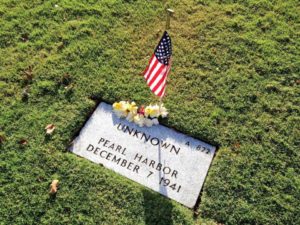 “I saw a woman in Central Park today wearing a T-shirt that said ‘America Was Never Great,’” a friend of mine tweeted over the weekend. I wasn’t surprised to hear it. My country contains many people who are contemptuous of its past, some of whom are no less dismissive of the men and women who endeavor to ensure that it will have a future. (Yes, makin’ mock o’ uniforms that guard you while you sleep/Is cheaper than them uniforms, an’ they’re starvation cheap.) All they can see are the flaws, of which there were and are many—many flaws and much honor.
“I saw a woman in Central Park today wearing a T-shirt that said ‘America Was Never Great,’” a friend of mine tweeted over the weekend. I wasn’t surprised to hear it. My country contains many people who are contemptuous of its past, some of whom are no less dismissive of the men and women who endeavor to ensure that it will have a future. (Yes, makin’ mock o’ uniforms that guard you while you sleep/Is cheaper than them uniforms, an’ they’re starvation cheap.) All they can see are the flaws, of which there were and are many—many flaws and much honor.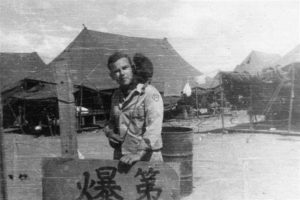 Whenever I read those words, I think of my late father, who served in the Army Air Corps during World War II. Though he never saw combat, he stood ready to do his duty, and I have no doubt that he would have done it without hesitation, just as he unhesitatingly saved me from drowning at the risk of his own life when I was a child. He was that kind of man. I hope I would have been the same kind under similar circumstances—but I’ll never know.
Whenever I read those words, I think of my late father, who served in the Army Air Corps during World War II. Though he never saw combat, he stood ready to do his duty, and I have no doubt that he would have done it without hesitation, just as he unhesitatingly saved me from drowning at the risk of his own life when I was a child. He was that kind of man. I hope I would have been the same kind under similar circumstances—but I’ll never know.
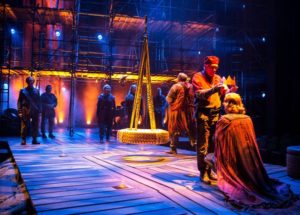 All of which bodes well for the success of “Tug of War,” in which Barbara Gaines, the artistic director of Chicago Shakespeare Theater, is presenting six of the history plays in two installments. The first installment, “Foreign Fire,” consists of her own adaptations of “Edward III,” “Henry V” and the first part of “Henry VI,” all performed by a 19-actor ensemble in a single six-hour span that is interrupted by a 45-minute dinner break. (It will be followed in September by “Civil Strife,” which comprises the second and third parts of “Henry VI” and “Richard III.”) Sure enough, Ms. Gaines herself uses the word “binge-watching” to describe the effect of “Tug of War,” but to me it feels more like the theatrical equivalent of an exceptionally well-done Shakespearean TV miniseries, though a more pertinent comparison comes no less readily to mind. Boldly drawn, slashingly direct and as fast-moving as an arrow whizzing toward its target, “Foreign Fire” is everything that the Royal Shakespeare Company’s much-ballyhooed 2015 marathon stage version of “Wolf Hall” should have been—and wasn’t….
All of which bodes well for the success of “Tug of War,” in which Barbara Gaines, the artistic director of Chicago Shakespeare Theater, is presenting six of the history plays in two installments. The first installment, “Foreign Fire,” consists of her own adaptations of “Edward III,” “Henry V” and the first part of “Henry VI,” all performed by a 19-actor ensemble in a single six-hour span that is interrupted by a 45-minute dinner break. (It will be followed in September by “Civil Strife,” which comprises the second and third parts of “Henry VI” and “Richard III.”) Sure enough, Ms. Gaines herself uses the word “binge-watching” to describe the effect of “Tug of War,” but to me it feels more like the theatrical equivalent of an exceptionally well-done Shakespearean TV miniseries, though a more pertinent comparison comes no less readily to mind. Boldly drawn, slashingly direct and as fast-moving as an arrow whizzing toward its target, “Foreign Fire” is everything that the Royal Shakespeare Company’s much-ballyhooed 2015 marathon stage version of “Wolf Hall” should have been—and wasn’t….